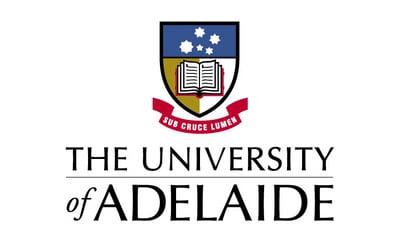Lumen Wirltuti:Warltati 2025 - Flipbook - Page 13

University
net zero
By Libby Hogarth
The University of Adelaide is proud to announce that we
have achieved net zero emissions across our directly controlled
operations, fulfilling a core commitment of our Here for good
Sustainability Strategy.
Achieving net zero operations means that the greenhouse
gas emissions from our directly controlled activities are now
fully balanced by removing an equivalent amount of
emissions from the atmosphere. This includes our emissions
from natural gas, refrigerants, transport fuels, agriculture,
electricity, waste, water, and energy transmission losses –
collectively known as Scope 1, Scope 2, and operational
Scope 3 emissions.
Research has included programs to combat wildlife
and environmental crimes; the role of legal frameworks for
biodiversity; climate-driven changes to wildfire regimes and laws;
and a benchmarking study of Adelaide’s urban forest with a
five-year plan to increase tree canopy and measure urban heat and
plant diversity to set the foundation for necessary future targets.
Conclusion
Our Environment Institute involves researchers hailing from all
faculties of the University of Adelaide. This multi-disciplinary
approach focuses on safeguarding the planet’s land, air and water
resources, working for outcomes with industry, government and
communities.
Each of our members is involved in further expansive networks
of citizen scientists, students and researchers, with influence that
extends across our planet, on every continent, in each environment.
While it is fair and reasonable to have concerns for our
environmental future, and despair at the slow pace of governmental
response, we should not lose hope.
I find it reassuring to know there is a huge community of people
world-wide, each of them working in their own way to seek
solutions and improve our future.
This buoys me and gives me continuing hope.
Professor Andrew Lowe is Director of the University of Adelaide’s
Environment Institute. He has a PhD in plant evolutionary biology
(1997) from the University of St Andrews, UK. Andy has helped secure
more than $250m of funding and he has published more than 250
scientific papers and books with more than 23,000 citations.
Story by Andy Lowe and Mark Douglas, Editor of Lumen. Main image
created by Lachlan Wallace, Communications Officer for the University
of Adelaide, using ChatGPT. Additional images supplied.
For further details of the wide-ranging work of the Environment
Institute, and how you can be involved as a researcher, volunteer or
donor, please visit our University website (adelaide.edu.au/environment),
follow the Environment Institute on social media to keep up to date
on events and actions, or consider becoming a citizen scientist through
website SciStarter.
LUMEN
Since 2010, the University has reduced its operational
emissions by 52%, thanks to investment in on-campus
sustainability initiatives and the decarbonisation of South
Australia’s electricity grid. This achievement is the result of
purpose-driven collaboration across our entire University
community. Staff and students have taken meaningful actions,
such as installing solar panels and batteries, reducing singleuse plastics, upgrading lighting, harvesting rainwater, and
electrifying infrastructure.
To balance our remaining emissions, we have purchased
carbon offsets from Greening Australia, a not-for-profit
organisation. The University has purposefully chosen projects
that remove carbon from the atmosphere and store it longterm, support biodiversity and habitat restoration, and where
possible, invest in South Australia’s growing low-carbon
economy. These environmental planting and forestry projects
are located at the Coorong, the Eyre Peninsula, and in
Western Australia.
Climate change and biodiversity loss are no longer distant
threats – they are urgent realities. As we transition toward the
new Adelaide University, we remain steadfast in our mission:
to equip future generations with the knowledge, skills, and
solutions to lead in a changing world.
Our amalgamation marks not only a structural
transformation but also an opportunity to shape a bold,
unified sustainability agenda. Establishing this agenda will take
time and meaningful consultation. But our direction is clear:
we will continue to foster purposeful collaboration internally
and externally, extend our impact beyond campus boundaries,
and work closely with strategic partners to address one of the
most complex challenges of our time.
Libby Hogarth is the University’s Manager - Sustainability
Strategy in the office of the Chief Operating Officer.